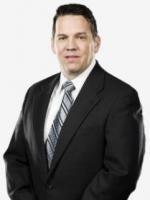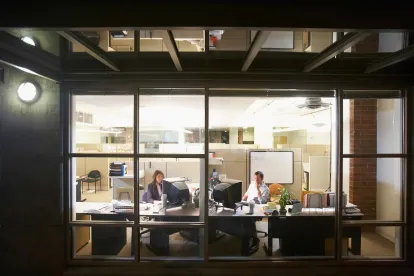Headlines that Matter for Companies and Executives in Regulated Industries
Archegos Executives Charged With Conspiring To Defraud Banks Out of Billions
On Wednesday, April 27, 2022, the US Attorney’s Office for the Southern District of New York unsealed an indictment charging Sung Kook “Bill” Hwang—founder of the now-defunct Archegos hedge fund—and Patrick Halligan—Archegos’ CFO—with conspiring to defraud banks out of billions of dollars.
According to the indictment, Hwang and Halligan lied to market participants about the fund’s portfolio by allegedly using derivative securities that did not have public disclosure requirements to obscure the size of Archegos’ positions in multiple companies from the public. As a result, the fund was “highly vulnerable” to price fluctuations in a number of stocks. When the prices of those stocks declined around late March 2021, Hwang allegedly directed Archegos’ traders to engage in a “buying spree” to attempt to reverse the price declines of the stocks underlying Archegos’ core positions. To effectuate that request, the traders allegedly used Archegos’ remaining cash and credit, including funds the Government alleges were borrowed based on misrepresentations, to pay for billions of dollars in trades over a few days. According to the Government, the “buying spree” failed, causing approximately $100 billion in market value to disappear.
Credit Suisse notably lost $1.5 billion in the Archegos downfall.
Hwang and Halligan have been charged with multiple counts, including securities fraud, wire fraud, and racketeering. The SEC has filed a parallel civil action.
You can read the DOJ indictment here, and the SEC complaint here.
Los Angeles Medical Testing Company Settles Claims Over Fake COVID Results
Sameday Technologies Inc.—a Los Angeles-based medical testing company—has agreed to pay more than $22 million to resolve claims brought by the Los Angeles County District Attorney’s Office that it sent hundreds of customers fake negative COVID-19 test results.
The company was created in 2020 with the goal of providing fast, reliable COVID-19 tests. It quickly grew into a national chain that claimed it could provide results from rapid COVID-19 tests within 24 hours. As demand for its services grew, the company’s labs could not keep up with the stated timetable, and the company began sending out fake results by taking existing lab reports from prior negative test results and changing the patient information.
At the same time, Sameday also partnered with a local physician to charge customers’ insurance companies paying for the COVID-19 tests an additional fee for so-called “medical consultations” that were—in reality—medically unnecessary. The company would then bill insurance companies, in exchange for a large portion of the doctor’s profits under the guise of a referral fee. The company allegedly submitted tens of thousands of claims for these kinds of “medical consultations” to insurers.
Under the settlement agreement, Sameday and its CEO agreed to not make untrue claims about the speed and accuracy of their COVID-10 test results, make any false insurance claims, and will retain a monitor for six months. Sameday’s CEO is banned from personally accessing any test results or medical records of the company’s customers.
Together, the company and the CEO will pay $9.6 million in restitution and $12.7 million in civil penalties. You can read the settlement agreement here.
Businessman Sentenced to More Than Four Years for COVID Loan Fraud
Muge Ma, an NYC businessman, was sentenced to 52 months in prison for submitting fraudulent loan applications for over $20 million in small business COVID-19 relief funds. Ma previously pled guilty to one count of bank fraud and one count of aggravated identity theft.
According to the Government, Ma falsely represented to the U.S. Small Business Administration and six financial institutions that his two companies had hundreds of employees and paid millions of dollars in wages to those employees, when in reality, Ma was apparently the sole employee of one of those companies and the other company had no employees. As part of the loan applications, Ma submitted, among other things, fraudulent bank, tax, insurance, and payroll records to six different banks. To at least one financial institution, Ma also used the name and identity of another person to submit a fraudulent loan application and supporting documentation.
Ma was subsequently approved to receive $650,000 from the Small Business Administration and another $800,000 in PPP loan funds from one financial institution. He received approximately $820,000 of those funds before withdrawing his applications from the banks and returning the funds.
You can read the DOJ’s press release here.






 />i
/>i

